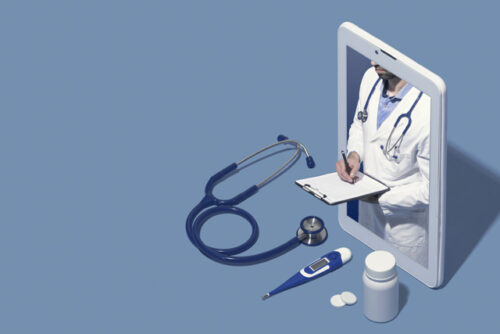
Telemedicine has rapidly transformed healthcare by allowing patients to access medical services remotely. However, this convenience also brings an increased risk of medical malpractice. In telemedicine, where physicians often rely on patient-reported symptoms and limited visual assessments, important clinical signs can be missed, leading to errors in diagnosis and treatment. When critical conditions are misdiagnosed, or treatments are delayed due to the inherent limitations of virtual care, the consequences can be severe.
These risks are particularly concerning in telemedicine, as patients with complex or urgent medical needs may not receive the thorough evaluations they require. Issues such as technical difficulties, communication breakdowns, or failure to recommend in-person follow-ups can result in worsened conditions or missed opportunities for timely intervention. If you or a family member has suffered harm due to errors in a telemedicine consultation, Davis & Davis can help you explore your legal options and protect your rights.
What Is Telemedicine?
Over the last decade, telemedicine has become an increasingly popular method of delivering medical care, especially during times when in-person visits may be impractical, such as during the COVID-19 pandemic. Patients appreciate the convenience of telemedicine, as it allows them to receive care from the comfort of their homes without the need for travel. Physicians also benefit from telemedicine’s flexibility, enabling them to reach more patients and reduce in-office congestion. Despite its benefits, however, telemedicine alters the traditional doctor-patient relationship in ways that can impact care quality.
One of the key challenges with telemedicine is the lack of physical examination, which can be a critical part of making an accurate diagnosis. While certain conditions are easy to diagnose remotely, others may require a hands-on evaluation that telemedicine simply cannot provide. Additionally, technical issues such as poor video or audio quality, connectivity problems, or even miscommunication between the patient and doctor can affect the accuracy and thoroughness of the consultation. This shift in how care is delivered introduces new risks, particularly when critical information is missed due to the constraints of remote communication.
Additional Challenges and Risks of Medical Malpractice in Telemedicine
Another key concern is the limited scope of care that telemedicine can offer. For example, physicians may not be able to order immediate lab tests or other diagnostics that would typically be part of an in-person visit. There is also a risk of relying too heavily on patients’ self-reported symptoms, which can sometimes be inaccurate. These limitations may result in the provision of incomplete or inappropriate care, raising the chances of a malpractice claim if a patient’s condition worsens due to these oversights.
How Patients and Physicians Can Reduce Telemedicine Risks
Both patients and physicians can take steps to reduce the risk of medical malpractice in telemedicine. For patients, it is crucial to prepare for telemedicine appointments by thoroughly documenting their symptoms and medical history. Clear communication is key, so patients should describe their symptoms in detail and follow up with any questions or concerns. Additionally, patients should ensure they are using a stable internet connection and a quiet environment to avoid distractions and miscommunications during the consultation.
Physicians, on the other hand, can mitigate risks by thoroughly documenting all aspects of telemedicine consultations. This includes noting any limitations of the remote examination and advising patients when an in-person follow-up is necessary. Physicians should also utilize secure, reliable telemedicine platforms and provide patients with detailed instructions on how to access and use these services effectively. By taking these precautionary steps, both parties can help minimize errors and improve the quality of remote healthcare.
How Davis & Davis Can Help You Navigate Medical Malpractice in Telemedicine
If your health or the health of a family member has been compromised during a telemedicine visit, Davis & Davis and our team are here to protect your rights. Our firm has over 70 years of combined experience in handling medical malpractice cases, including the emerging risks associated with telemedicine. We understand the complexities involved in virtual healthcare and how it can lead to significant patient harm, meaning we will fight hard for any damages you may have incurred.
At Davis & Davis, we are committed to helping you explore your legal options and seek the compensation you may be entitled to. Telemedicine should never compromise the quality of care, and when it does, it’s essential to take action. Contact us at (888) 522-9444 or visit our contact form to schedule your free consultation.









